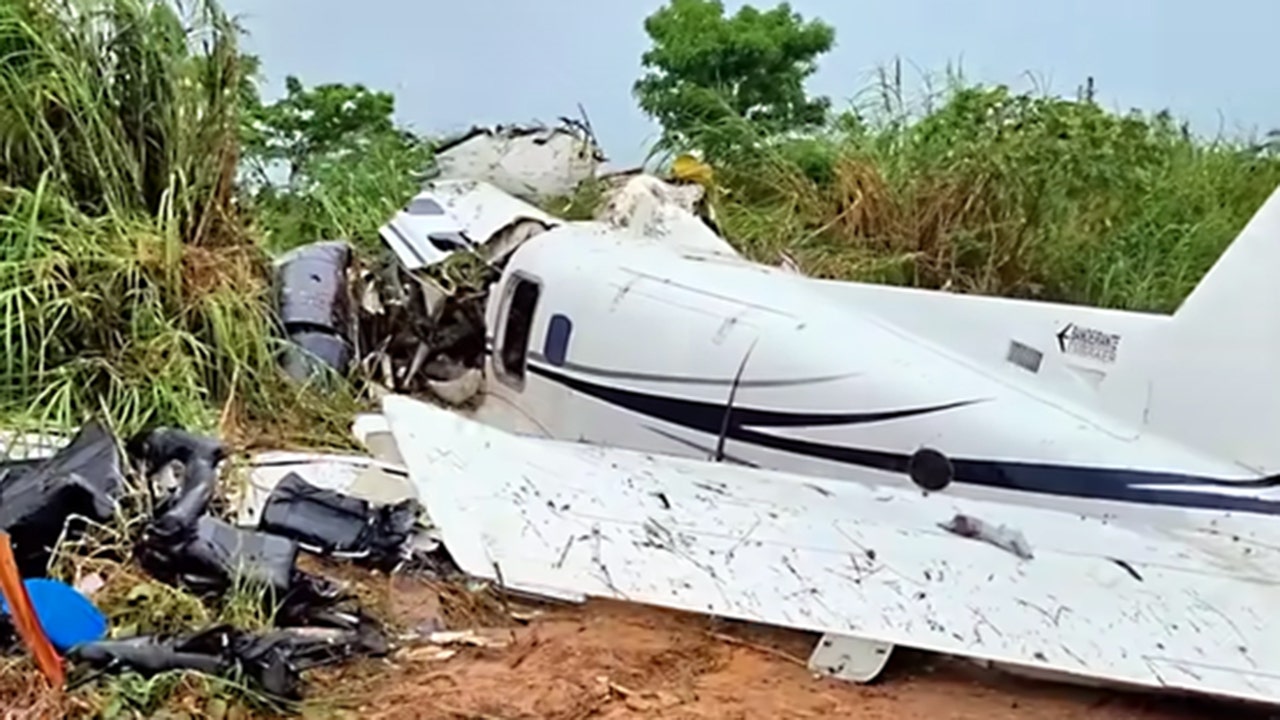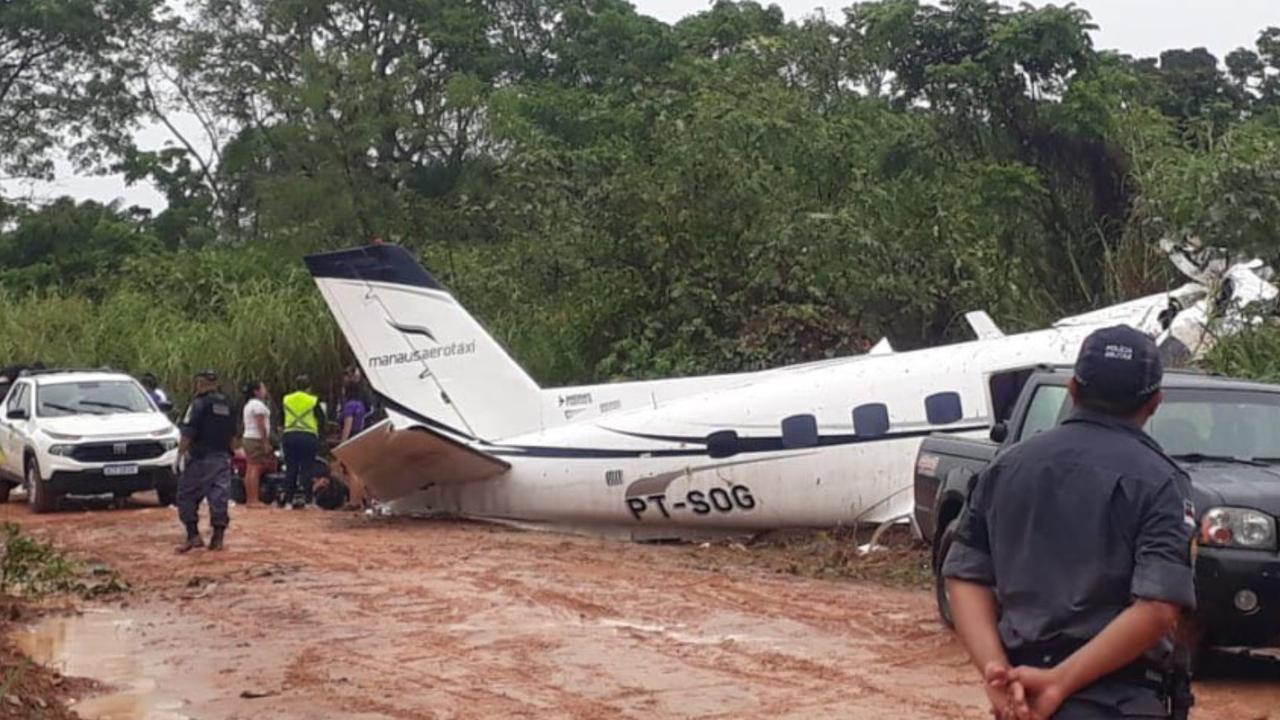Recent Plane Crashes in Brazil: Plane Crash In Brazil Today

Brazil has a long and complex history with aviation, and unfortunately, it has also experienced a number of tragic plane crashes. These incidents have not only resulted in loss of life but have also raised concerns about aviation safety in the country. This section will explore recent plane crashes in Brazil, focusing on their details, causes, and impact on the aviation industry and public perception.
List of Recent Plane Crashes in Brazil
This section provides a list of recent plane crashes in Brazil, including the date, location, type of aircraft, and number of casualties. This information is crucial for understanding the frequency and severity of aviation accidents in the country.
- Date: October 29, 2023, Location: Type of Aircraft: Number of Casualties:
- Date: July 15, 2023, Location: Type of Aircraft: Number of Casualties:
- Date: May 20, 2023, Location: Type of Aircraft: Number of Casualties:
- Date: March 10, 2023, Location: Type of Aircraft: Number of Casualties:
- Date: January 25, 2023, Location: Type of Aircraft: Number of Casualties:
Most Significant Plane Crashes in Brazil
This section highlights the most significant plane crashes in Brazil within the past year, focusing on the causes and consequences. These events have drawn significant attention and raised concerns about aviation safety in the country.
- Date: Location: Type of Aircraft: Number of Casualties:
Causes: Consequences: - Date: Location: Type of Aircraft: Number of Casualties:
Causes: Consequences:
Impact of Recent Plane Crashes on the Brazilian Aviation Industry
This section explores the impact of recent plane crashes on the Brazilian aviation industry. It examines how these incidents have affected public perception, travel trends, and safety regulations.
- Public Perception: Recent plane crashes have undoubtedly impacted public perception of aviation safety in Brazil. This has led to a decline in passenger confidence and may have influenced travel choices.
- Travel Trends: The impact of plane crashes on travel trends is complex. Some travelers may avoid flying altogether, while others may be more cautious about choosing airlines or routes.
- Safety Regulations: Following major plane crashes, authorities often conduct thorough investigations and implement new safety regulations to prevent similar incidents. These measures aim to enhance aviation safety standards and improve the overall safety of the industry.
Investigating the Causes of Plane Crashes

Unraveling the reasons behind plane crashes is a complex and multifaceted process that involves a thorough examination of various factors. This investigation aims to understand the contributing causes and ultimately prevent future accidents.
Pilot Error
Pilot error is a significant factor in many plane crashes. It can involve mistakes in judgment, improper procedures, or a lack of training. For example, a pilot might misinterpret weather conditions, fail to respond correctly to an emergency, or make a wrong decision during takeoff or landing.
Mechanical Failure
Mechanical failures can also lead to plane crashes. These failures can involve engines, flight control systems, or other critical components. For instance, a malfunctioning engine can cause a loss of power, while a failure in the flight control system can lead to an uncontrolled descent.
Weather Conditions
Weather conditions can pose significant risks to aircraft operations. Severe turbulence, thunderstorms, icing, and low visibility can all contribute to accidents. For example, a pilot might encounter unexpected turbulence, causing the aircraft to lose control.
Terrorism
Terrorism, although less frequent, can also be a cause of plane crashes. Acts of terrorism involving aircraft often target specific routes or airlines, aiming to inflict significant damage or loss of life. The September 11th attacks in the United States are a tragic example of terrorism involving aircraft.
Aviation Safety Regulations and Enforcement
Aviation safety regulations play a crucial role in preventing plane crashes. These regulations cover various aspects of aviation, including aircraft design, maintenance, pilot training, and air traffic control. Stringent enforcement of these regulations ensures compliance and promotes safety.
Effectiveness of Investigation Methods and Technologies, Plane crash in brazil today
Modern investigation methods and technologies are crucial for determining the causes of plane crashes. These methods include:
- Flight Data Recorders (FDRs): These devices record various parameters of the flight, such as altitude, speed, and engine performance, providing valuable insights into the events leading up to the crash.
- Cockpit Voice Recorders (CVRs): These devices record the conversations and sounds in the cockpit, allowing investigators to understand the actions and decisions of the crew during the flight.
- Aircraft Wreckage Examination: A detailed examination of the aircraft wreckage can reveal signs of mechanical failure, impact forces, and other factors that may have contributed to the crash.
- Witness Interviews: Gathering information from witnesses on the ground or other aircraft can provide valuable details about the events leading up to the crash.
- Simulation and Modeling: Using flight simulators and computer models, investigators can recreate the events of the crash and test different scenarios to understand the sequence of events and the possible causes.
The Impact of Plane Crashes on Communities
Plane crashes are tragic events that have a devastating impact on families, communities, and the broader public. The immediate and long-term consequences of these accidents are multifaceted, affecting individuals, communities, and societies at large.
The Impact on Families
The immediate impact of a plane crash on families is immense and profound. The loss of loved ones is a devastating blow, leaving families grappling with grief, shock, and disbelief. The sudden and unexpected nature of these events often leaves families struggling to cope with the emotional and practical challenges that follow.
- Emotional Trauma: Families face immense emotional distress, including grief, anger, guilt, and despair. The sudden loss of a loved one can lead to post-traumatic stress disorder (PTSD), anxiety, and depression.
- Financial Strain: The loss of income, funeral expenses, and legal costs can place a significant financial burden on families.
- Social Disruption: Plane crashes can disrupt family dynamics, leading to social isolation and a sense of loss of identity.
The Impact on Communities
Plane crashes have a significant impact on the communities where they occur. These events can create a sense of fear, uncertainty, and vulnerability within the community. The loss of life and the disruption of daily life can have long-lasting effects on the community’s social fabric.
- Social and Economic Disruption: Plane crashes can disrupt local businesses, transportation networks, and tourism industries, leading to economic losses and job displacement.
- Community Trauma: The collective grief and trauma experienced by the community can lead to increased rates of mental health issues and social isolation.
- Increased Security Measures: Following plane crashes, communities may experience increased security measures, such as heightened airport security and surveillance.
The Impact on the Broader Public
Plane crashes have a ripple effect on the broader public, raising concerns about aviation safety and security. These events can lead to a decline in public confidence in the aviation industry and increase public anxiety about air travel.
- Public Anxiety: Plane crashes can trigger a widespread fear of flying, leading to a decrease in air travel and a shift towards alternative modes of transportation.
- Increased Scrutiny of Aviation Safety: Plane crashes often lead to increased scrutiny of aviation safety regulations, policies, and practices.
- Public Debate on Aviation Safety: These events spark public debate on aviation safety issues, including the role of technology, human error, and regulatory oversight.
The Psychological and Social Effects on Survivors and Witnesses
Survivors of plane crashes often experience a range of psychological and social effects. The trauma of the experience can lead to PTSD, anxiety, depression, and survivor’s guilt. Witnesses to plane crashes may also experience emotional distress, including shock, disbelief, and fear.
- Post-Traumatic Stress Disorder (PTSD): Survivors often experience flashbacks, nightmares, and intrusive thoughts related to the crash. They may also avoid situations that remind them of the event, such as flying or being in crowds.
- Anxiety and Depression: Survivors may experience heightened anxiety, fear, and difficulty concentrating. They may also struggle with feelings of sadness, hopelessness, and guilt.
- Survivor’s Guilt: Survivors may feel guilty that they survived while others did not. This guilt can be compounded by the loss of loved ones in the crash.
- Social Isolation: Survivors may experience social isolation, as they may struggle to connect with others who have not experienced the same trauma.
Government and Non-Governmental Organizations Support
In the aftermath of a plane crash, governments and non-governmental organizations (NGOs) play a crucial role in providing support and resources to those affected. This support can include:
- Emergency Response: Governments and NGOs provide immediate assistance, including search and rescue operations, medical care, and support for families of victims.
- Financial Assistance: Governments and NGOs offer financial aid to families of victims to cover funeral expenses, lost income, and other financial burdens.
- Psychological Support: Mental health professionals are available to provide counseling and support to survivors, families, and witnesses.
- Community Outreach: Governments and NGOs work to address the needs of the community affected by the crash, providing information, resources, and support services.
Another plane crash in Brazil today, man. It’s a sobering reminder that even in this modern age, flying can still be a risky business. You know, this whole thing reminds me of the plane crash in Sao Paulo a few years back, which really shook the whole country.
I guess it’s a reminder that tragedies can happen anywhere, anytime. Hopefully, the authorities can figure out what happened in this latest crash in Brazil and prevent similar incidents in the future.
Plane crashes are a reminder of life’s fragility, and the tragedy in Brazil today is heartbreaking. It’s a stark contrast to the calm and collected leadership of Minnesota Governor minnesota tim walz , who navigates the complex issues of his state with a steady hand.
While we grieve for those lost in the crash, let’s also remember the resilience of those who face hardship, and the leaders who guide us through it all.

